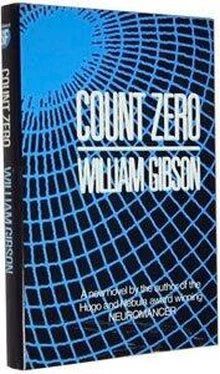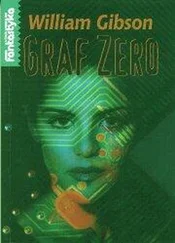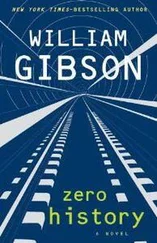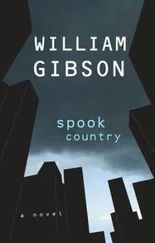The car slid smoothly away from the curb as Bobby dropped to his knees on a soft pile of rugs.
“Lunch will be served in thirty minutes, sir, unless you’d care for something sooner,” a voice said. It was soft, melodious, and seemed to come from nowhere in particular.
Lucas laughed. “They really knew how to build ’em in Damascus,” he said.
“Where?”
“Damascus,” Lucas said as he unbuttoned his suit coat and settled back into a wedge of pale cushions. “This is a Rolls. Old one. Those Arabs built a good car, while they had the money.”
“Lucas,” Bobby said, his mouth half full of cold fried chicken, “how come it’s taking us an hour and a half to get to New York? We aren’t exactly crawling…”
“Because,” Lucas said, pausing for another sip of cold white wine, “that’s how long it’s taking us. Ahmed has all the factory options, including a first-rate counter-surveillance system. On the road, rolling, Ahmed provides a remarkable degree of privacy, more than I’m ordinarily willing to pay for in New York. Ahmed, you get the feeling anybody’s trying to get to us, listen in or anything?”
“No, sir,” the voice said. “Eight minutes ago our identification panel was infra-scanned by a Tactical helicopter. The helicopter’s number was MH-dash-3-dash-848, piloted by Corporal Roberto—”
“Okay, okay,” Lucas said. “Fine. Never mind You see? Ahmed got more on those Tacs than they got on us.” He wiped his hands on a thick white linen napkin and took a gold toothpick from his jacket pocket.
“Lucas,” Bobby said, while Lucas probed delicately at the gaps between his big square teeth, “what would happen if, say, I asked you to take me to Times Square and let me out?”
“Ah,” Lucas said, lowering the toothpick, “the city’s most resonant acre What’s the matter, Bobby, a drug problem?”
“Well, no, but I was wondering.”
“Wondering what? You want to go to Times Square?”
“No, that was just the first place I thought of. What I mean is, I guess, would you let me go?”
“No,” Lucas said, “not to put too fine a point on it. But you don’t have to think of yourself as a prisoner. More like a guest. A valued guest.”
Bobby smiled wanly. “Oh. Okay. Like what they call protective custody, I guess.”
“Right,” Lucas said, bringing the gold toothpick into play again. “And while we are here, securely screened by the good Ahmed, it’s time we have a talk. Brother Beauvoir has already told you a little about us, I think What do you think, Bobby. about what he’s told you?”
“Well,” Bobby said, “it’s real interesting, but I’m not sure I understand it.”
“What don’t you understand?”
“Well, I don’t know about this voodoo stuff…”
Lucas raised his eyebrows.
“I mean, it’s your business, what you wanna buy, I mean, believe, right? But one minute Beauvoir’s talking biz, street tech, like I never heard before, and the next he’s talking mambos and ghosts and snakes and, and…”
“And what?”
“Horses,” Bobby said, his throat tight.
“Bobby, do you know what a metaphor is?”
“A component? Like a capacitor?”
“No. Never mind metaphor, then. When Beauvoir or I talk to you about the ba and their horses, as we call those few the ba choose to ride, you should pretend that we are talking two languages at once. One of them, you already understand. That’s the language of street tech, as you call it. We may be using different words, but we’re talking tech. Maybe we call something Ougou Feray that you might call an icebreaker, you understand? But at the same time, with the same words, we are talking about other things, and that you don’t understand. You don’t need to.” He put his toothpick away.
Bobby took a deep breath. “Beauvoir said that Jackie’s a horse for a snake, a snake called Danbala. You run that by me in street tech?”
“Certainly. Think of Jackie as a deck, Bobby, a cyberspace deck, a very pretty one with nice ankles.” Lucas grinned and Bobby blushed. “Think of Danbala, who some people call the snake, as a program. Say as an icebreaker. Danbala slots into the Jackie deck, Jackie cuts ice. That’s all.”
“Okay,” Bobby said, getting the hang of it, “then what’s the matrix? If she’s a deck, and Danbala’s a program, what’s cyberspace?”
“The world,” Lucas said.
“Best if we walk from here,” Lucas said.
The Rolls came to a silent, silken halt and Lucas stood, buttoning his suit coat. “Ahmed attracts too much attention.” He picked up his cane, and the door made a soft chunking sound as it unlocked itself.
Bobby climbed down behind him, into the unmistakable signature smell of the Sprawl, a rich amalgam of stale subway exhalations, ancient soot, and the carcinogenic tang of fresh plastics, all of it shot through with the carbon edge of illicit fossil fuels. High overhead, in the reflected glare of arc lamps, one of the unfinished Fuller domes shut out two thirds of the salmon-pink evening sky, its ragged edge like broken gray honeycomb. The Sprawl’s patchwork of domes tended to generate inadvertent microclimates; there were areas of a few city blocks where a fine drizzle of condensation fell continually from the soot-stained geodesics, and sections of high dome famous for displays of static-discharge, a peculiarly urban variety of lightning. There was a stiff wind blowing, as Bobby followed Lucas down the street, a warm, gritty breeze that probably had something to do with pressure shifts in the Sprawl-long subway system.
“Remember what I told you,” Lucas said, his eyes nar-rowed against the grit. “The man is far more than he seems. Even if he were nothing more than what he seems, you would owe him a degree of respect. If you want to be a cowboy, you’re about to meet a landmark in the trade.”
“Yeah, right.” He skipped to avoid a graying length of printout that tried to wrap itself around his ankle. “So he’s the one you an’ Beauvoir bought the—”
“Ha! No! Remember what I told you. You speak in the open street, you may as well put your words up on a bulletin-board…”
Bobby grimaced, then nodded. Shit. He kept blowing it. Here he was with a major operator, up to his neck in some amazing kind of biz, and he kept acting like a wilson. Operator. That was the word for Lucas, and for Beauvoir, too, and that voodoo talk was Just some game they ran on people, he’d decided. In the Rolls, Lucas had launched into some strange extended number about Legba, who he said was the ba of communication, “the master of roads and pathways,” all about how the man he was taking Bobby to meet was a favorite of Legba’s. When Bobby asked if the man was another oungan, Lucas said no; he said the man had walked with Legba all his life, so close that he’d never known the ba was there at all, like it was just a part of him, his shadow. And this was the man, Lucas had said, who’d sold them the software that Two-a-Day had rented to Bobby…
Lucas rounded a corner and stopped, Bobby close behind. They stood in front of a blackened brownstone whose windows had been sealed decades before with sheets of corrugated steel. Part of the ground floor had once been a shop of some kind, its cracked display windows opaque with grime. The door, between the blind windows, had been reinforced with the same steel that sealed the windows of the upper floors, and Bobby thought he could make out some sort of sign behind the window to his left, discarded neon script tilted diagonally in the gloom. Lucas just stood there, facing the doorway, his face expressionless, the tip of his cane planted neatly on the sidewalk and his large hands one atop the other on the brass knob. “First thing that you learn,” he said, with the tone of a man reciting a proverb, “is that you always gotta wait…”
Читать дальше











